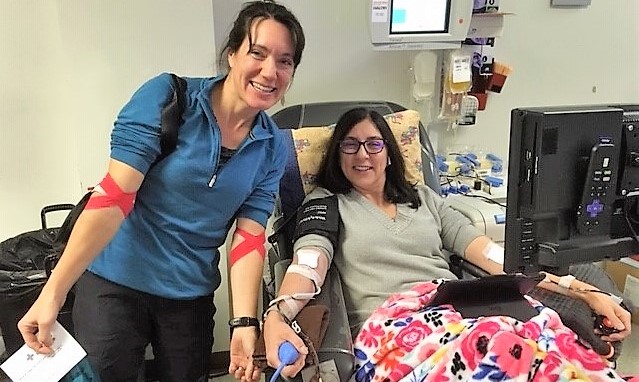
The strength of Intermountain’s system and the ability of caregivers to collaborate and respond rapidly to safety issues was demonstrated in full last week when a nationwide shortage of blood platelets caused inventories to drop to potentially crisis levels.
The Red Cross notified Intermountain of the situation on a Friday afternoon. Within hours, Intermountain physician, nursing and operations leaders assembled a huddle call. They formulated an emergency plan from each affected clinical area to conserve our platelet supply for critical needs only, by postponing elective procedures and surgeries. While the Red Cross worked feverishly to remedy the source problem, an extensive communication plan and daily huddles were executed systemwide.
“All of our clinical leaders stepped up and actively planned within their clinical areas how to prioritize patient needs and in some cases put elective procedures on hold to assure patient safety. Our clinicians worked collaboratively with our transfusion staff to optimize the care of our patients during this critical shortage. The highest level of professionalism was exercised,” said Sarah Ilstrup, MD, medical director for Clinical Pathology. “Our laboratory services transfusion staff worked tirelessly to optimize the utilization of the very limited platelet inventory by moving platelets as applicable throughout the system to shift the available platelets to the patients with the highest needs. This process was facilitated by our dedicated courier team. I have never been prouder to be associated with Intermountain.”
Walter Kelley, DO, FCAP, medical director for the Lewis and Clark Region of the American Red Cross, and who was intimately involved in managing the situation, said “The Red Cross is fortunate to have the strong partnership of Intermountain. Intermountain responded with decisive action to this situation. Intermountain’s senior leadership ensured that resources were coordinated between its facilities and among its numerous physicians, nurses and blood bank staff members, and worked closely with the Red Cross to thoughtfully deploy the limited platelet resource available. This significant coordinated effort ensured the needs of each patient were considered and through the work of these teams no serious negative outcomes resulted from the platelet shortage.”
This is an example not only of the power of our aligned system, but also of the amazing individuals who make up our Intermountain team. I learned that the shortage prompted several of our caregivers to donate over the weekend. That’s amazing commitment.
I’d like to give a special thanks to the following individuals who participated in this coordinated effort:
Diane Alonso, MD, Julie Asch, MD, Nannette Berensen, Maria Black, Paul Brown, MD, Karen Brownell, Mary Brieske, MD, Nate Buhrley, Amy Christensen, Karen Dominguez, John Doty, MD, Terri Draper, Rob Ferguson, MD, Doug Greally, MD, Colin Grissom, MD, David Hasleton, MD, Daanish Hoda, MD, Robert Hoesch, MD, PhD, Georgann Jensen, Sarah Ilstrup, MD, Diego Ize-Ludlow, MD, Terri Kane, Walter Kelley, DO, Tae Kim, MD, Paul Krakovitz, MD, Bryant Larsen, John Macfarlane, MD, Molly Maughan, David Min, MD, Joe Mott, Liz O'Brien, MD, Mark Ott, MD, Flint Porter, MD, Jeannette Prochazka, Adrian Puttgen, MD, Terry Rees, Nate Richards, MD, Masood Safaee, MD, Will Shakespeare, MD, Allison Showalter, MD, Ethan Shumway, David Smith, MD, Paul Urie, MD, PhD, Linda Venner, MD, Hugh West, MD, Keith White, MD, Tim Yeatman, MD, Blake Zobell, MD

